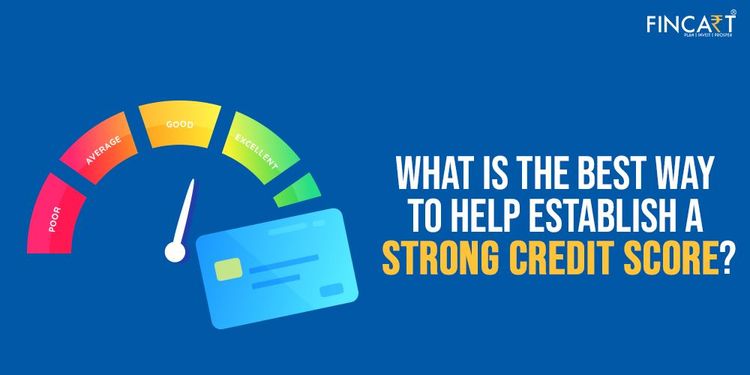Table of Contents
ToggleWhy do you visit a doctor for a routine checkup? It’s because you want to maintain your health. The records of your checkups are presented in a health report through which the doctor assesses your health.
Accordingly, when it comes to financial health, having a strong credit score portrays your financial health. From credit card outstanding bills to your EMIs of loans, every single thing is recorded in your CIBIL/credit report. Seeing, your financial history the lenders decide whether or not an additional financial product should be given to you.
Well, in this blog, we’ll be learning about:
- What is the significance of a Credit score?
- How to improve & build a strong credit score?
- What are the mistakes to avoid to maintain a healthy credit score?
What is the importance of a credit score?
A credit score or a CIBIL score is a 3-digit numeric summary of your entire credit history. The value of financial history ranges from a 300-900 score. As stated above it has a detailed analysis report containing your financial history including your secured and unsecured loans or credit card debt you might have. However, 750 is considered to be a good & healthy score.
Before going for a home loan, check your CIBIL score to know the latest score. Many websites provide you with both free and paid access to CIBIL scores. Let’s see what you can access in a credit report:
- Credit record availed by you
- Record of your repayments of loans/credit cards
- Record of defaults made on EMIs or credit card outstanding
- Record of your inquiries that you made for loans or credit cards
A credit score or CIBIL score plays a crucial role in determining the approval/rejection of your home loan application. The first thing the bank checks is your credit score as this gives them an idea about your creditworthiness.
Generally, rejection is faced when the CIBIL score is less as it shows that you have a bad credit history. Although, every bank has its own set of cutoff scores. However, the most common good score is considered above 750, and less than 750 is regarded as a bad credit score.
Still, there are NBFCs available that can help you get a home loan with a below-average score but the interest rate charged by them is high.
Below 400 is a mostly unacceptable score in both Traditional banks and NBFCs.
How to improve & build a strong credit score?
There are a few tips that can help you to improve and build a strong credit score. Let’s start with those tips then:
1. Set your Reminders for Repayment
There might be some instances in your life when you get so engrossed in the work that you end up forgetting to repay your outstanding loans/EMIs. However, unintentionally you might just mess up your credit score drastically.
Punctuality is what you need when it comes to repayment of loan amounts or credit card outstandings. As you not only end up paying the outstanding amount but also a penalty for late payment.
2. Avoid having multiple loans
If you are habitual of taking a loan on top of another, then please STOP! One payment delay in any of your loans can impact your CIBIL score majorly. There’s a huge possibility that you might have insufficient funds to repay the EMI amount of all loans.
Take one loan at a time, repay that first, and then if required apply for another loan.
Don’t overburden yourself financially!
3. Maintain a Healthy Credit Mix
A healthy credit report is when you have a blend of both secured and unsecured loans. When collateral is involved people tend to pay that loan with complete dedication. However, lenders also focus on the fact that whether or not you can take care of an unsecured loan.
Unsecured loans like personal loans increase your chances of availing of a secured loan like a home loan. Too many unsecured loans might bring in a negative impact. So be sure to balance your unsecured and secured loans altogether.
4. Keep checking your Credit report for discrepancies
Many times it might happen that you’ve closed a loan but it still might show in your credit report as Active. The credit bureau has all your financial records & which will help you to cross-check over errors. Such kind of errors can lead to a decline in your credit score. Therefore, make sure to go through these errors and find your credit score increasing.
5. Limit your credit card utilization
Many of us tend to utilize our credit cards to their fullest. For instance, if you get a credit limit of 1lakh then you might end up using the maximum amount of 1 lakh or even complete. It is recommended to only use 30% of the credit card to maintain your credit utilization. Don’t use more than 30,000 Rs. if your limit is 1 lakhs.




